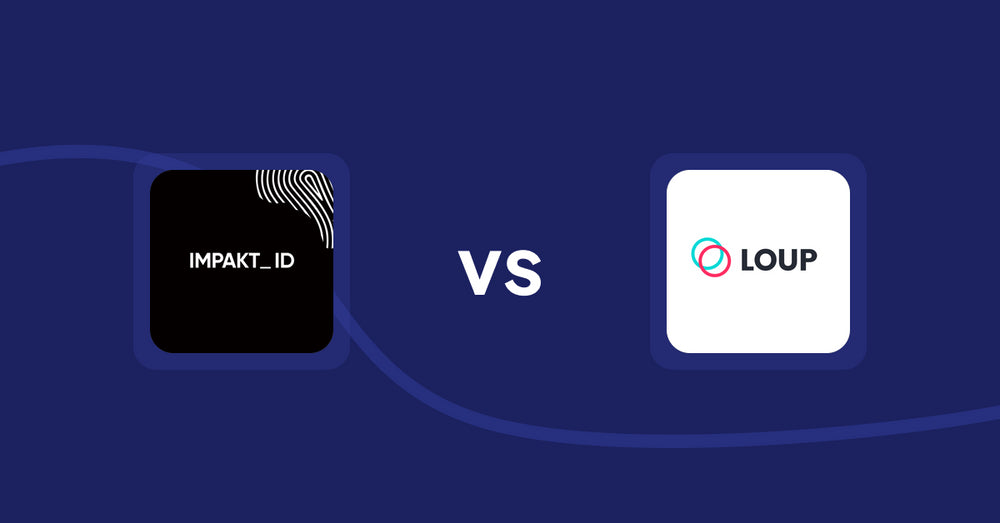Shopify Metafield Apps: TableFlow Specification Table vs Parameterizer

Table of Contents
- Introduction
- How Does TableFlow Specification Table Work?
- How Does Parameterizer Work?
- How Much Does TableFlow Specification Table Cost?
- How much does Parameterizer cost?
- Cost Analysis: TableFlow Specification Table vs. Parameterizer
- User Reviews & Customer Support Insights
- Integration and Compatibility Comparison
- Conclusion
Introduction
In today's competitive e-commerce landscape, providing detailed product information is essential for building customer trust and enhancing purchase certainty. Metafields play a crucial role in this process, allowing store owners to enrich product pages with additional specifications, attributes, and features that aid decision-making. Metafield apps are designed to streamline and optimize this aspect of the shopping experience, making it easier for merchants to manage and display pertinent product information efficiently.In the realm of Metafield apps, two prominent contenders are the TableFlow Specification Table and Parameterizer. Both applications promise to enhance product listings on Shopify, but they cater to slightly different needs and offer varying functionalities. In this article, we will explore how TableFlow Specification Table excels at managing specifications and customer engagement, while Parameterizer positions itself as a tool for filtering and selecting products based on various parameters.
How Does TableFlow Specification Table Work?
TableFlow Specification Table allows merchants to easily incorporate comprehensive specification tables into their product pages, thereby enriching the customer’s shopping experience. By mapping metafields to specification tables, the app not only helps in displaying intricate details about each item but also enhances the user's ability to make informed choices quickly.The main features of TableFlow Specification Table include:
-
Unlimited Products and Table Groups: With this feature, businesses of any size can create detailed tables for countless products, making it a perfect fit for startups, small to medium businesses, and large enterprises alike.
-
Real-Time Specification Changes: The app dynamically updates specification tables as customers customize their product selections, providing immediate feedback without reloading the page, which is crucial for maintaining user engagement.
-
Conditional Display Logic: Merchants can set rules on when and where to display specification tables, ensuring that only relevant information is shown to specific customers or products. This targeted approach can significantly reduce customer inquiries and enhance satisfaction.
-
Customizable Tooltips: By adding additional information through tooltips, businesses can provide context-necessary explanations without cluttering the interface.
-
Diverse Templates: Users can choose from various pre-designed templates for both specification tables and multi-column formats, allowing for a consistent and professional look across product listings.
Imagine a small business selling bicycles with different frame sizes. The TableFlow Specification Table can display essential specifications such as wheel size, frame material, and saddle height simultaneously for each variant, making it easier for customers to compare multiple options at a glance.
How Does Parameterizer Work?
Parameterizer focuses on speeding up the product selection process in vast collections by enabling customers to filter products using particular parameters. Whether it’s dimensions, capacities, or computer specifications, Parameterizer allows users to quickly narrow down choices without sifting through extensive listings.The main features of Parameterizer include:
-
Product Selection Filters: Users can filter products based on combined criteria, offering a nuanced product search experience that satisfies more specific needs.
-
Easy Integration with Themes: The app is compatible with popular Shopify themes, promoting seamless use without extensive customization.
Parameterizer may appeal to businesses with extensive inventories needing granular filtering options. However, while it offers valuable functionalities for product management, it lacks the depth of features found in TableFlow Specification Table, limiting its effectiveness for brands looking to present detailed specifications.
How Much Does TableFlow Specification Table Cost?
Cost-effective solutions are vital in leveraging Metafields for maximum impact. TableFlow Specification Table offers a single pricing tier, making it accessible without hidden costs.- Price: $5.96/month
- Features: Unlimited product support, maximum of 150 table groups, real-time updates, conditional display logic, and email support.
- Limitations: While powerful, some advanced functionalities may not be available at this price point, necessitating a potential upgrade as operations grow.
- Target Audience: This pricing tier is ideally suited for startups or growing small to medium businesses seeking to enhance their product display without overspending.
- Additional Costs: The app does not suggest any additional fees beyond the monthly subscription.
It is important to note that you can always reach out to our team and we can create a custom pricing plan to suit your needs and your budget. Schedule a call via this link and we’ll come up with the best solution for you and your business.
How much does Parameterizer cost?
When discussing cost, it’s crucial to ensure that solutions align with budget constraints while delivering adequate value. Parameterizer presents a singular pricing plan:- Price: $11/month
- Features: Basic compatibility across Shopify themes, which aids simple product searches.
- Limitations: Lacks the richer set of features that enable detailed specification display, which may detract from its utility for businesses needing extensive metadata presentation.
- Target Audience: This pricing tier may appeal to small businesses that primarily need to filter products based on basic attributes rather than showcasing detailed specifications.
- Additional Costs: There are no noted extra fees; however, given its simpler functionality, businesses may find they require additional tools for comprehensive product management.
Cost Analysis: TableFlow Specification Table vs. Parameterizer
When analyzing both apps’ pricing, TableFlow Specification Table stands out with a notable lower cost, providing essential features that enhance product engagement. In contrast, Parameterizer, while helpful for certain use cases, does not deliver enough value for the $11 price point, especially considering the richer functionalities offered by TableFlow.TableFlow’s straightforward pricing model serves a broader segment of businesses looking for affordability combined with functionalities. While Parameterizer has potential uses for large catalogues, TableFlow proves to be a better investment for its all-encompassing capabilities at a lesser price.
User Reviews & Customer Support Insights
Is TableFlow Specification Table good?
TableFlow Specification Table is well-regarded, as reflected in its 5-star rating from 64 reviews. Users praise the intuitive interface and powerful features that facilitate the display of essential product specifications effortlessly. The support offered is also a notable highlight, adding value to the overall user experience.Is Parameterizer good?
Parameterizer, with an average rating of 0 stars from no reviews, indicates a lack of user feedback. As such, it is difficult to ascertain precise opinions from users. However, one might hypothesize that potential users would appreciate a simplified filtering process but could criticize the lack of comprehensive functionalities. The absence of user testimonials points to the challenge in establishing credibility within the market.Customer support is critical and can significantly influence app ratings. If Parameterizer lacks strong support mechanisms, users may find themselves frustrated, hindering positive experiences.
User Preference: TableFlow Specification Table or Parameterizer?
Analyzing the average ratings, TableFlow Specification Table stands out as the clearly favored option among users. This could primarily be attributed to its feature-rich offering that aligns more closely with user needs for a comprehensive Metafield solution. The user-friendly design and effectiveness in facilitating a smooth shopping experience contribute to its positive reception.In contrast, Parameterizer’s lack of user reviews may indicate lower adoption rates or a smaller user base, which, when compared, highlights TableFlow’s superior appeal and market presence.
Integration and Compatibility Comparison
TableFlow Specification Table Integrations
TableFlow seamlessly integrates with Translate & Adapt, allowing users to manage multilingual specifications effectively. This capability enhances the global accessibility of product information, ensuring that businesses can cater to diverse customer bases.Parameterizer Integrations:
Parameterizer authenticates with integrations relevant to shipping and logistics, such as Ukrposhta and NovaPost. Although this supports specific operational needs, it lacks the essential integrations found in TableFlow, which might limit its overall functionality.When considering integration capabilities, TableFlow provides a more robust framework that facilitates enhancing customer experiences.
Conclusion
Both TableFlow Specification Table and Parameterizer present unique offerings to enhance product displays on Shopify. However, when evaluated comprehensively, TableFlow Specification Table clearly emerges as the superior choice. With its user-friendly design, extensive feature set, and attractive pricing model, it caters effectively to businesses of all sizes. The impressive 5-star rating and robust customer support reinforce its standing in the marketplace.While Parameterizer has its merits, particularly in product selection, it does not match the depth and breadth of features provided by TableFlow. For businesses looking to elevate their product presentation through Metafields, TableFlow Specification Table emerges as the go-to solution for reliable and efficient performance.
Still Searching for the Perfect Customization Solution?
Stop searching and start thriving with Accentuate Custom Fields! This powerful metafield management app supercharges Shopify’s native features, giving you the tools to create a truly personalized customer experience.
Why Choose Accentuate Custom Fields?
- Advanced Customization: Unlimited field definitions, logical grouping, and custom layouts make your store one-of-a-kind.
- Enhanced Editor Experience: Effortlessly edit variant metafields, use advanced HTML and markdown editors, and sync field definitions between stores.
- Flexible Management: Import/export capabilities, automatic tagging, and comprehensive support for Metaobjects and versioning.
- 24/7 Support: If you have any questions or need assistance, our team is available around the clock to help with any custom modifications to suit your store.
Join over 12,000 merchants, including top Shopify Plus stores, who trust Accentuate for their customization needs. With a stellar 4.9-star rating, Accentuate is the go-to tool for advanced CMS needs, offering unmatched flexibility and control over your store’s content. Elevate your Shopify store with high-quality content that boosts customer experiences and conversions. Tell your story, showcase your products, and create an engaging customer journey with ease.
Experience the Accentuate difference and watch your Shopify store thrive!
Accentuate vs Competition
Explore how Accentuate Custom Fields stands out. Whether you’re aiming to customise your storefront, streamline operations or improve content management, see how we compare against the competition
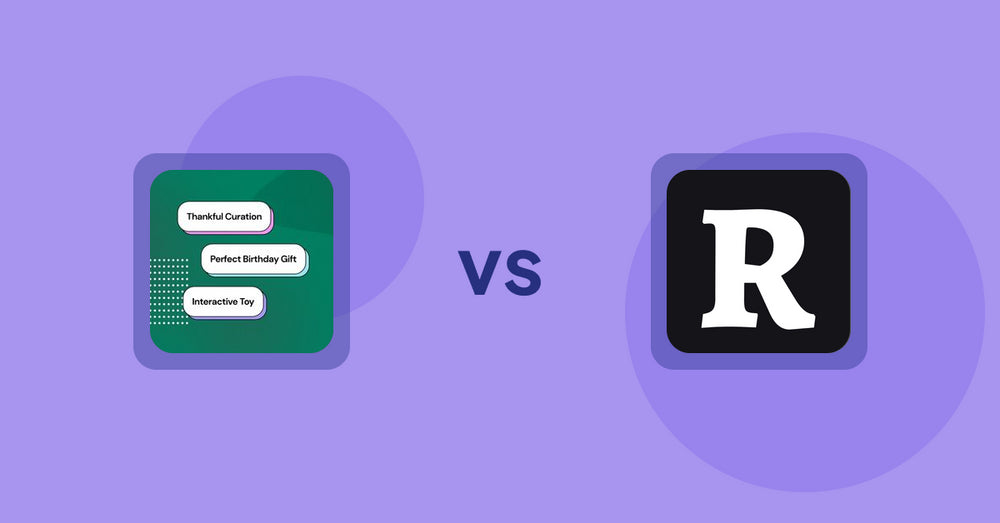
Shopify Product Display Apps: FeatureFrame ‑ Pretty Product vs. AI SEO: Top Product Features
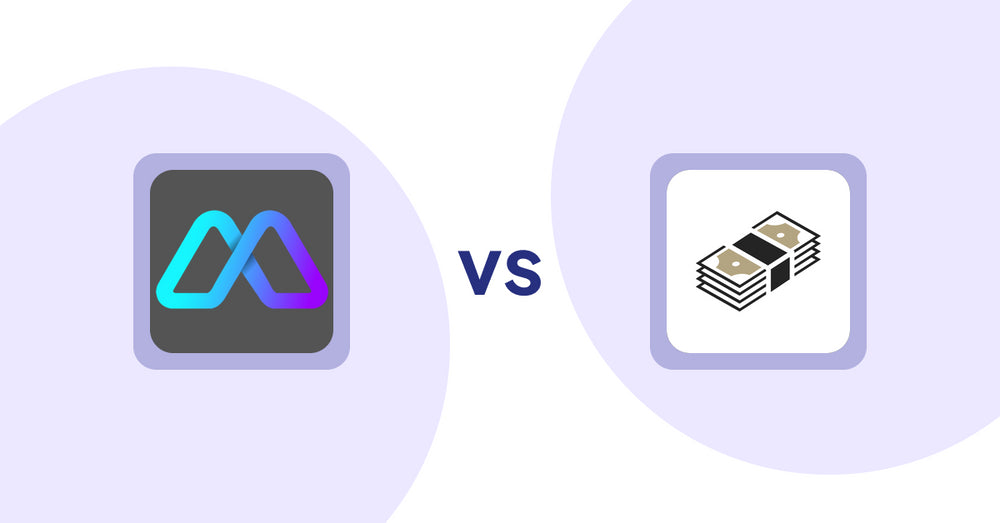
Shopify Product Display Apps: Metadrob: Create Virtual Store vs シンプルクラウドファンディング|お手軽自社クラファン
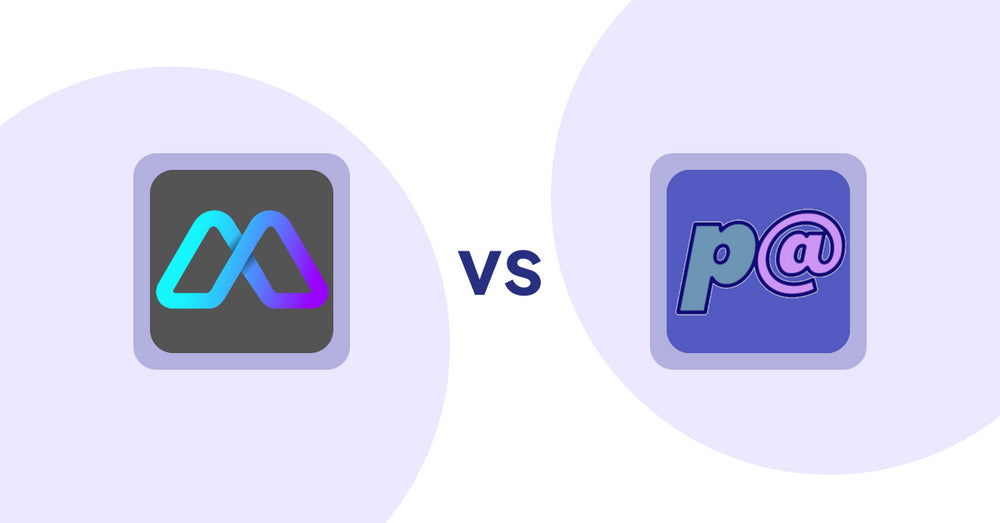
Shopify Product Display Apps: Metadrob: Create Virtual Store vs Parameterizer
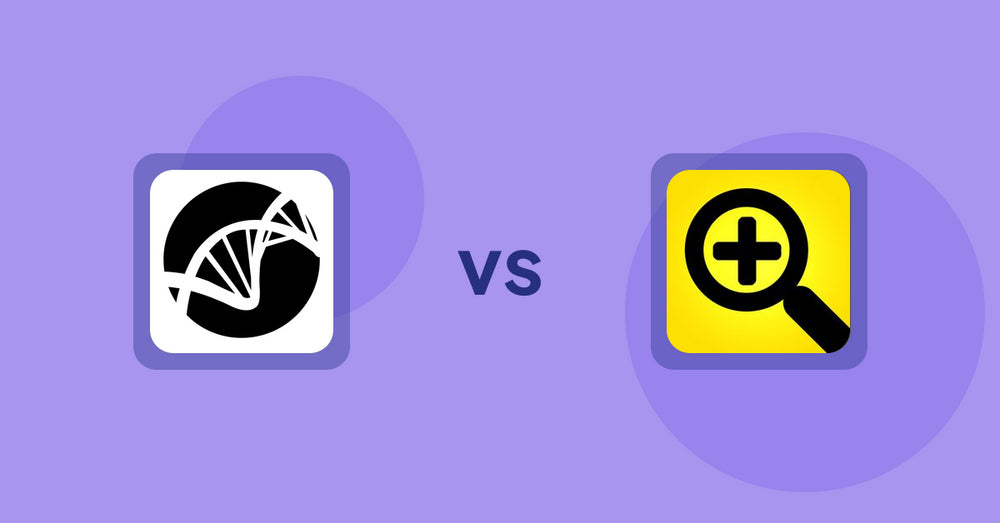
Shopify Product Display Apps: Bike Matrix vs. Fast View: Fastest Quick View
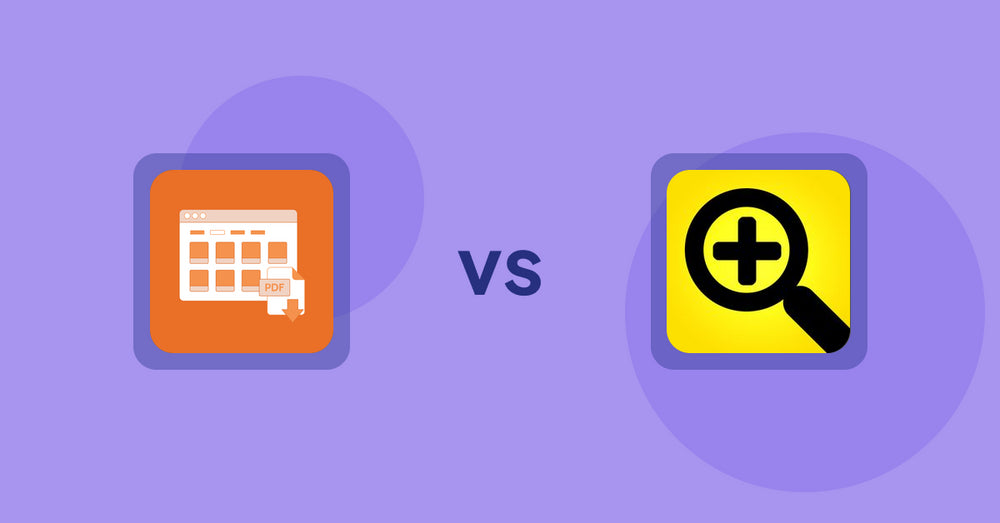
Shopify Product Display Apps: Meetanshi PDF Product Catalog vs Fast View: Fastest Quick View
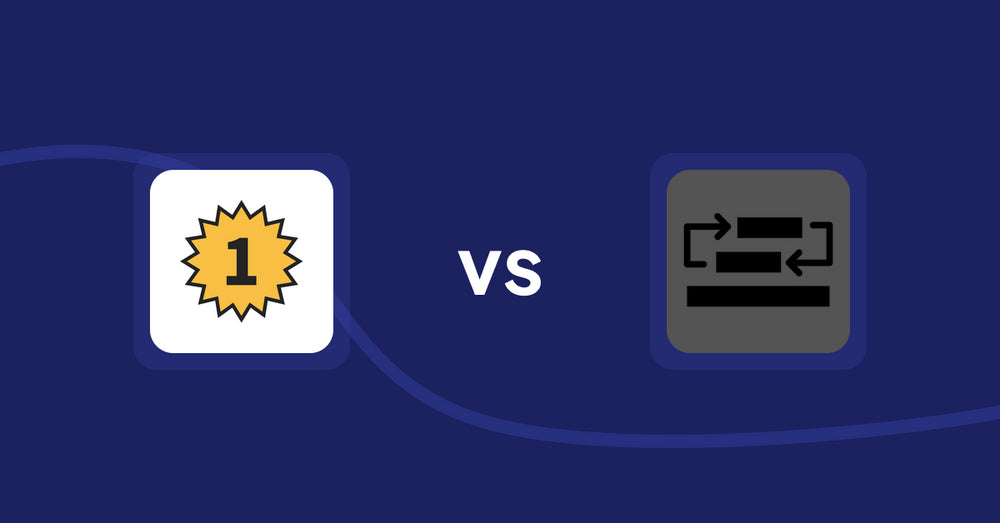
Shopify Product Display Apps: UR: Smart Ranking vs Sortyfi Collection Merchandise
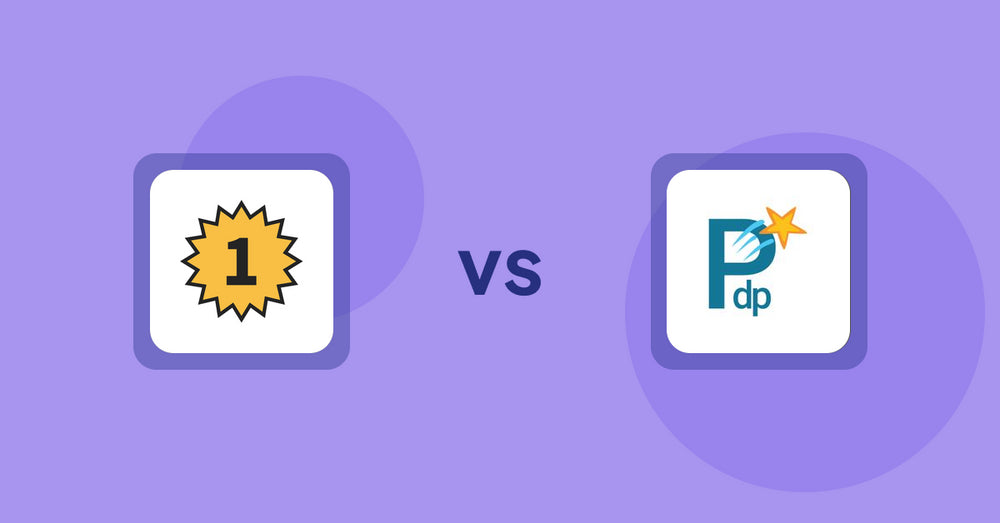
Shopify Product Display Apps: UR: Smart Ranking vs PDP Star
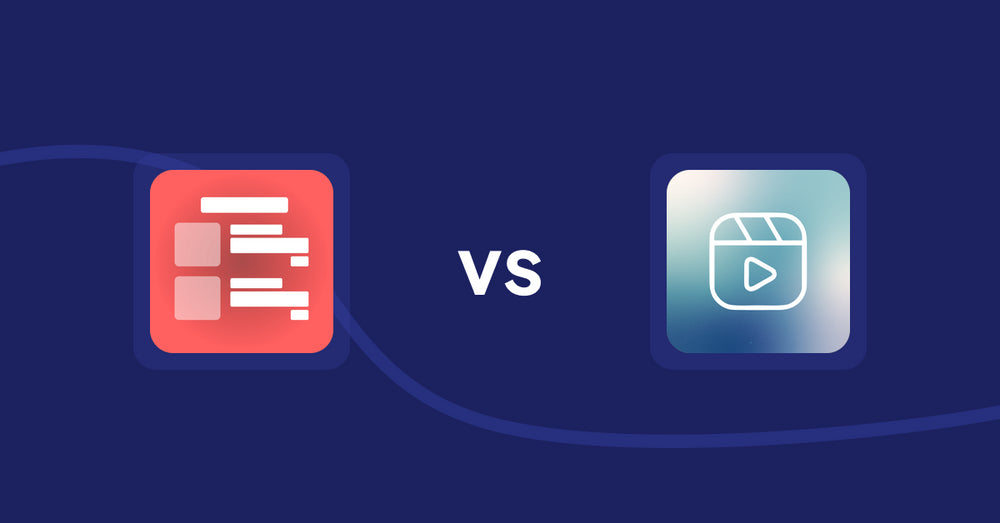
Shopify Product Display Apps: Menulog vs Reelify ‑ Shoppable Reel Video
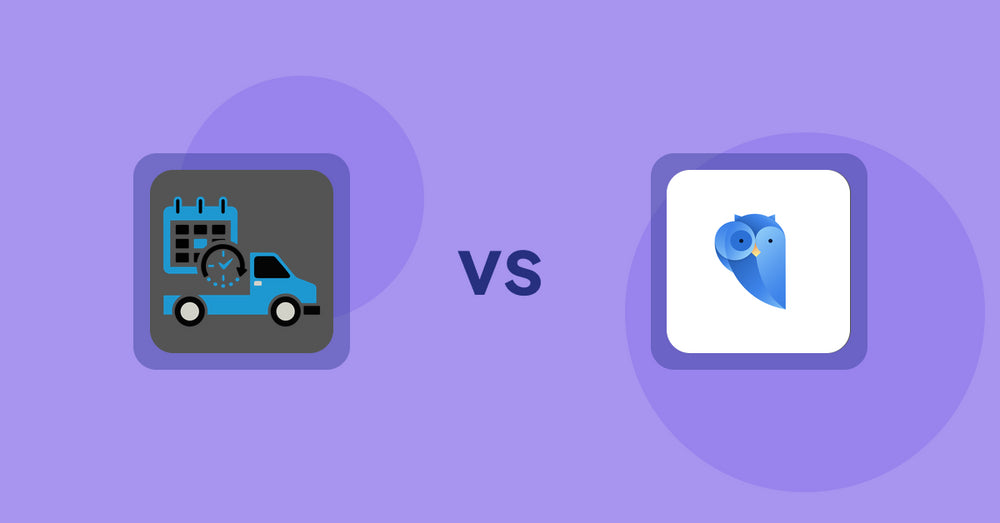
Shopify Product Display Apps: H3 Estimated Delivery vs Findify Search & Merchandise
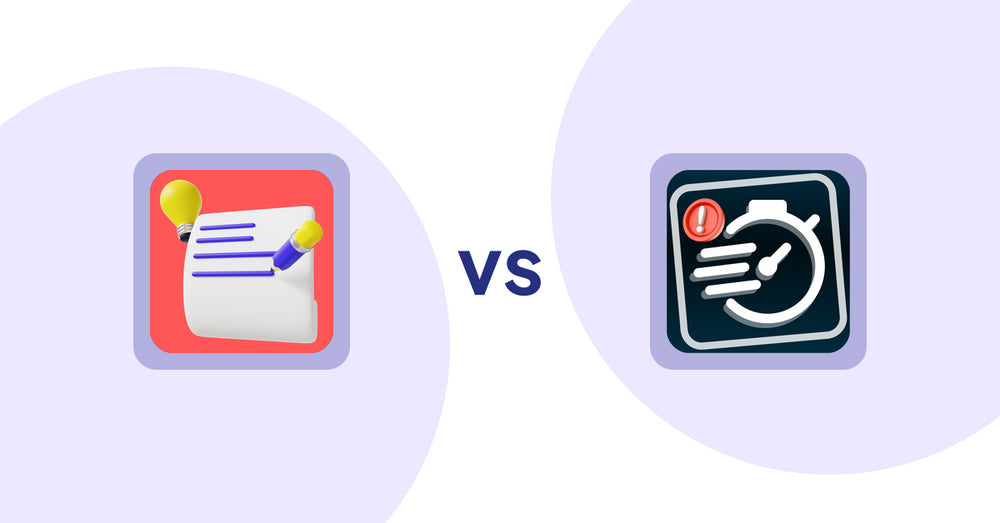
Shopify Product Display Apps: Wordo ‑ ChatGPT AI Description vs Urgency! Low Stock Counter
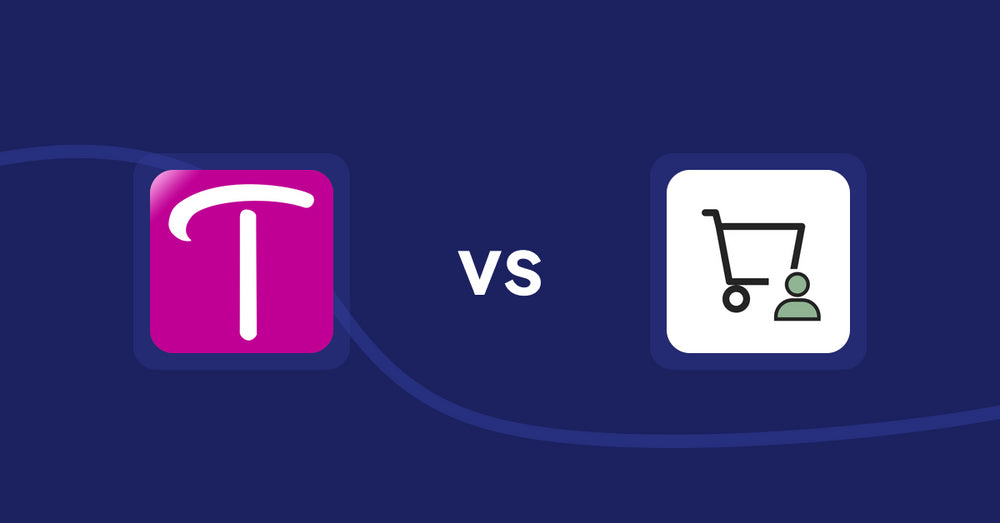
Shopify Product Display Apps: WS Transparency vs シンプル会員注文割引|お手軽ログインセール設定
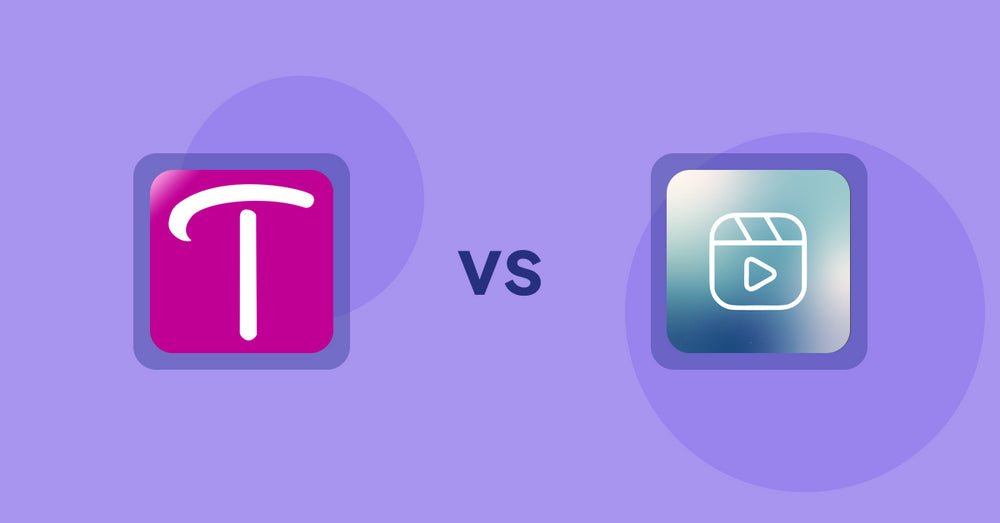
Shopify Product Display Apps: WS Transparency vs Reelify ‑ Shoppable Reel Video
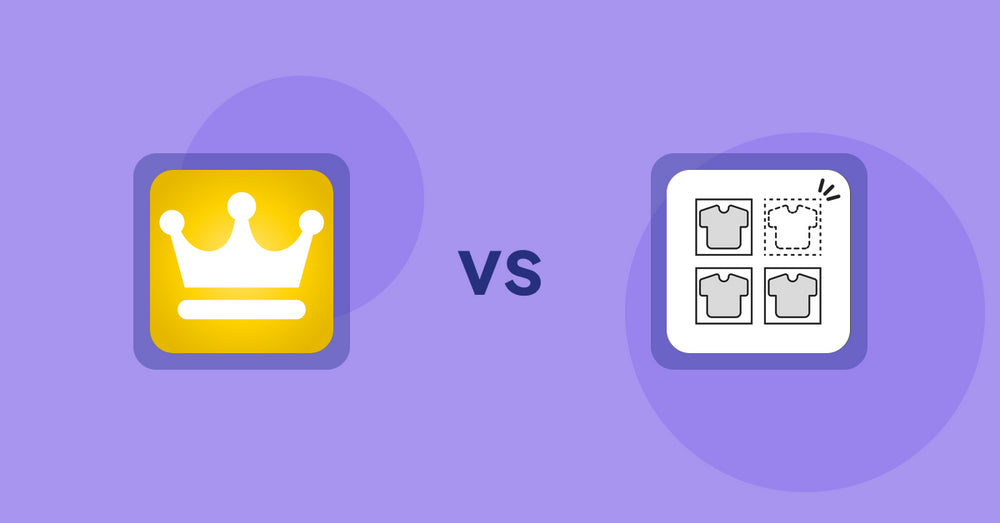
Shopify Product Display Apps: Awesome Ranking vs シンプル売り切れ非表示|在庫切れ商品の表示変更
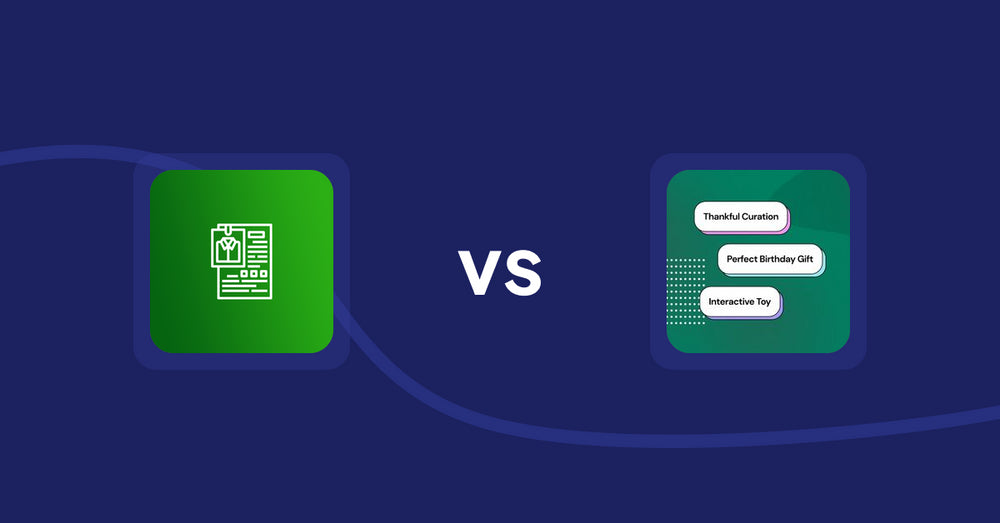
Shopify Product Display Apps: OC Product Size Chart vs FeatureFrame ‑ Pretty Product
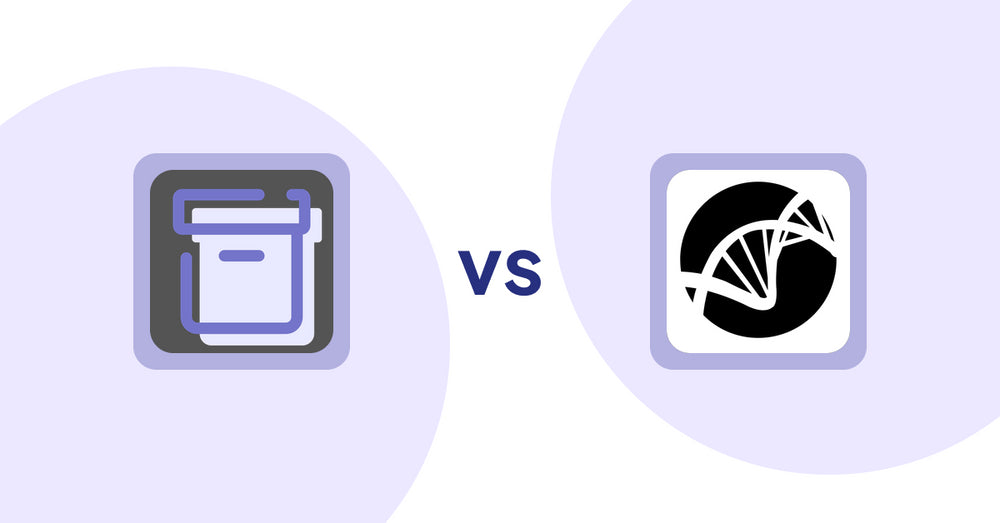
Shopify Product Display Apps: Shelfify vs Bike Matrix
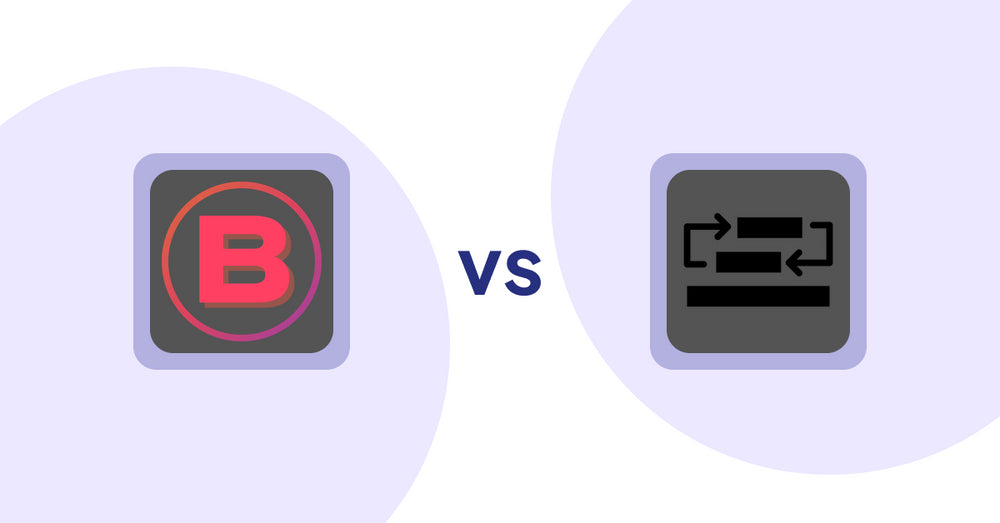
Shopify Product Display Apps: Banter Stories vs Sortyfi Collection Merchandise
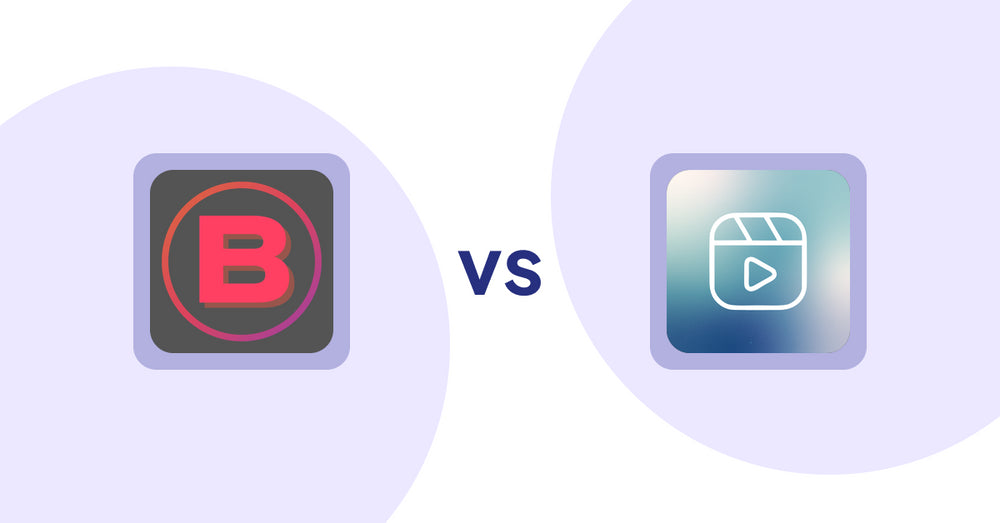
Shopify Product Display Apps: Banter Stories vs. Reelify ‑ Shoppable Reel Video
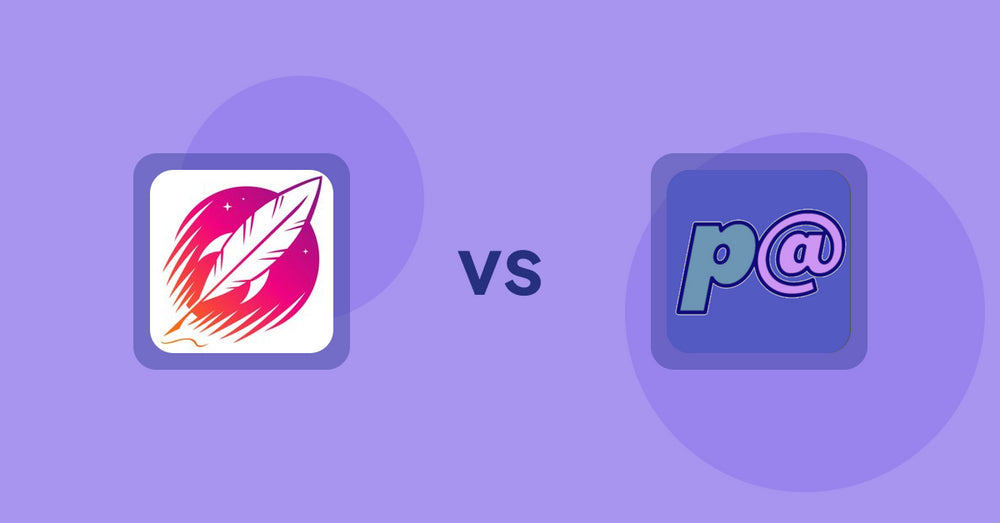
Shopify Product Display Apps: Wordsmith: Content Generator vs Parameterizer
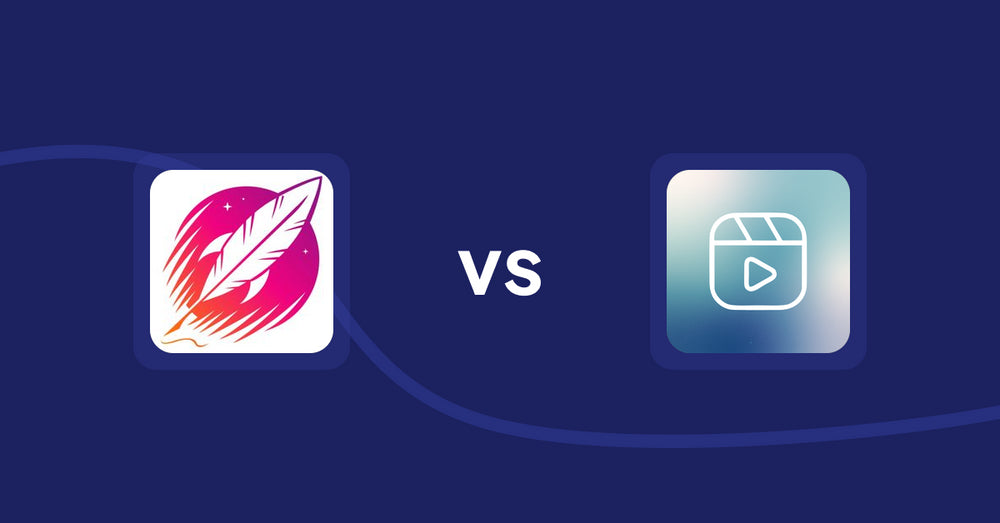
Shopify Product Display Apps: Wordsmith: Content Generator vs Reelify ‑ Shoppable Reel Video
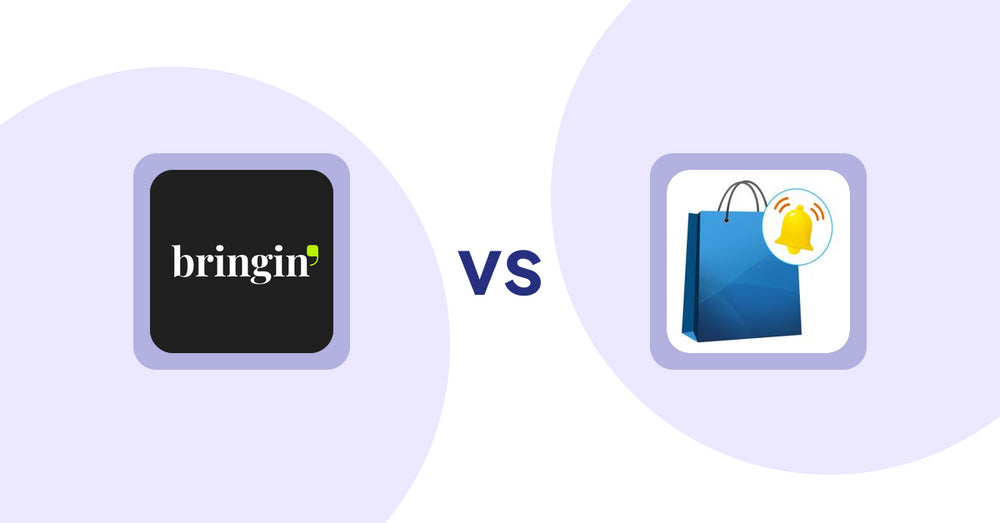
Shopify Product Display Apps: Bringin vs CartBar ‑ Product Purchase Bar
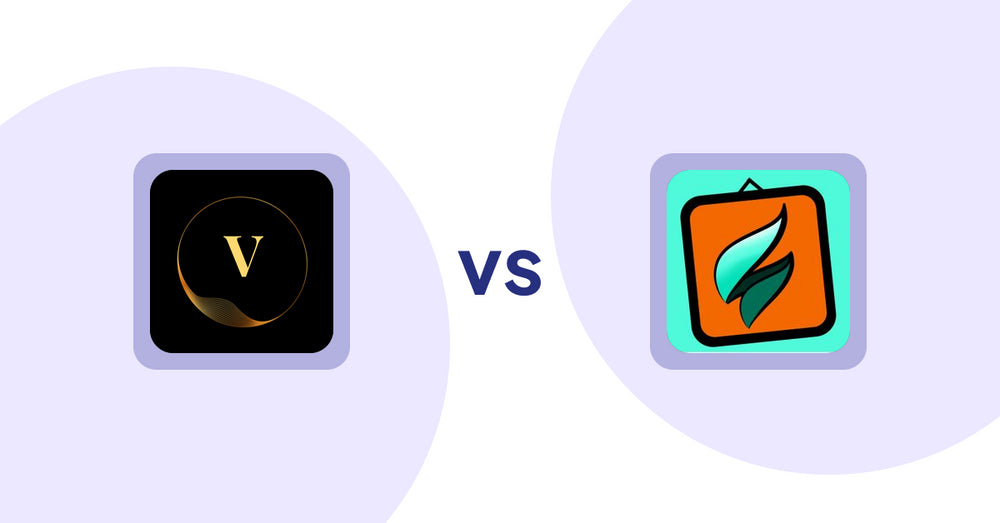
Shopify Product Display Apps: ProductTube vs SMART ‑ Art Product Builder
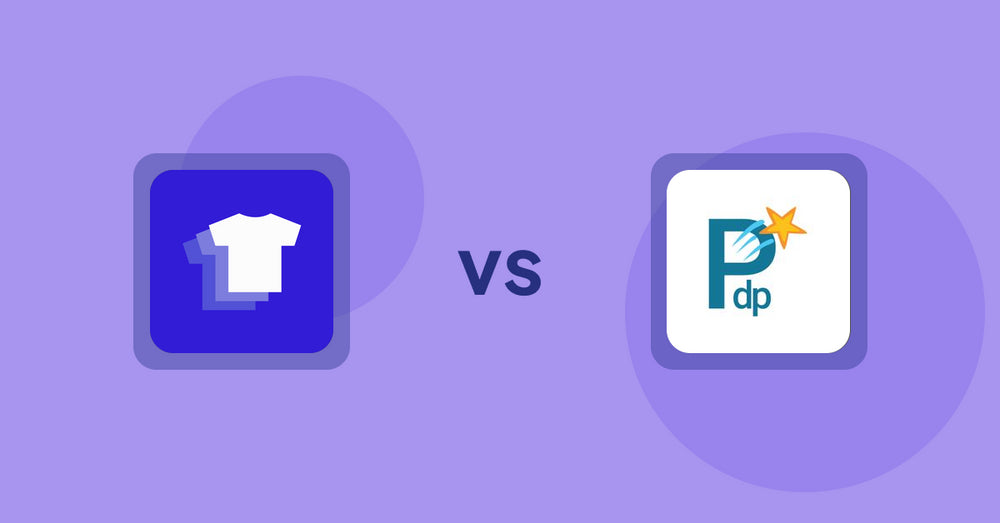
Shopify Product Display Apps: Xpander vs PDP Star
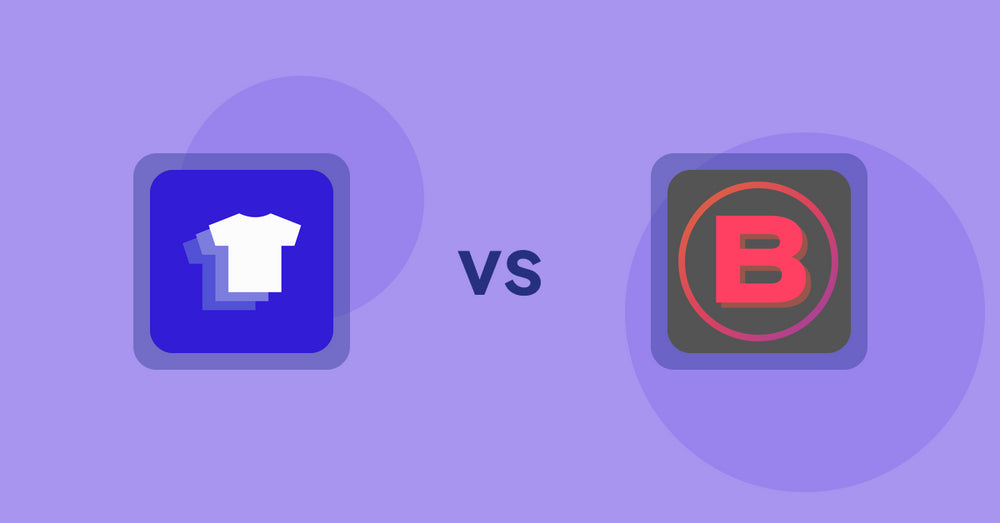
Shopify Product Display Apps: Xpander vs Banter Stories
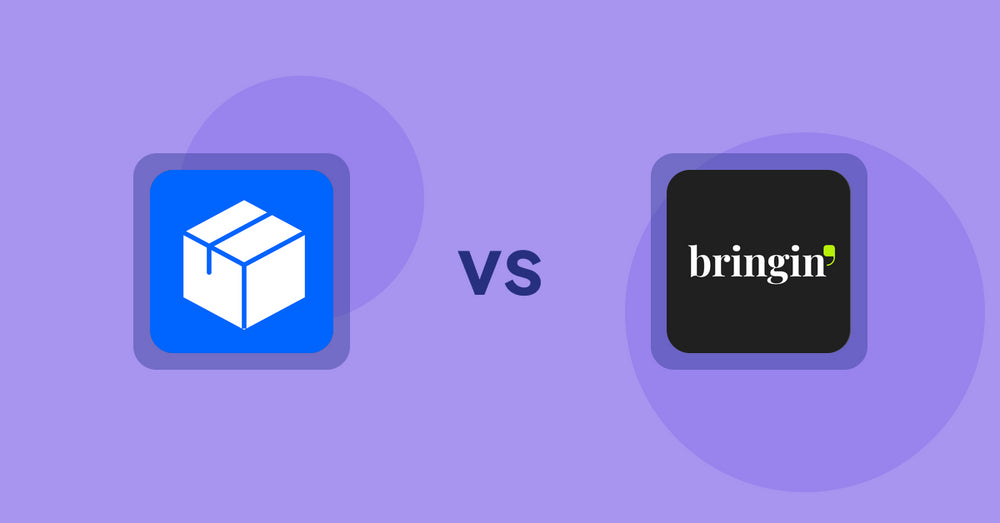
Shopify Product Display Apps: Wonderful Widgets vs Bringin
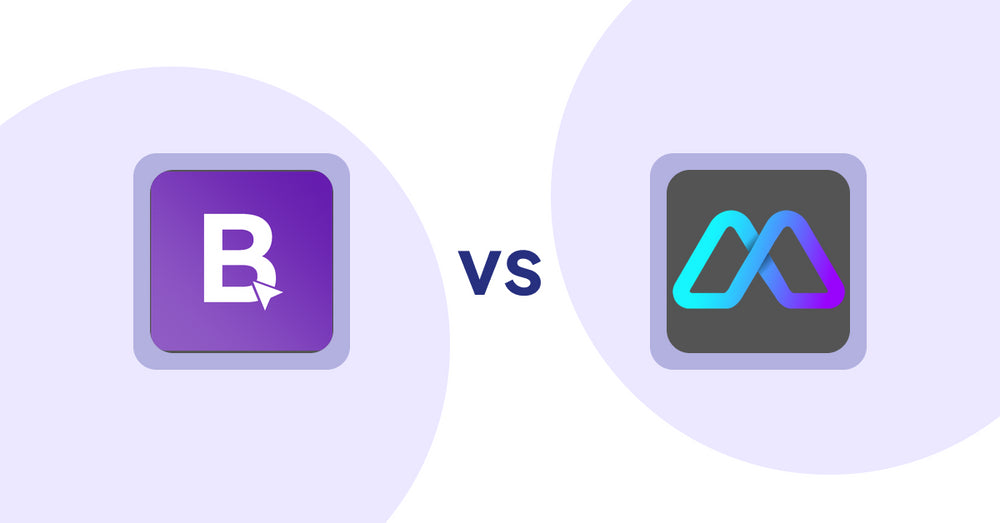
Shopify Product Display Apps: BookE - Rent Property & Service vs Metadrob: Create Virtual Store
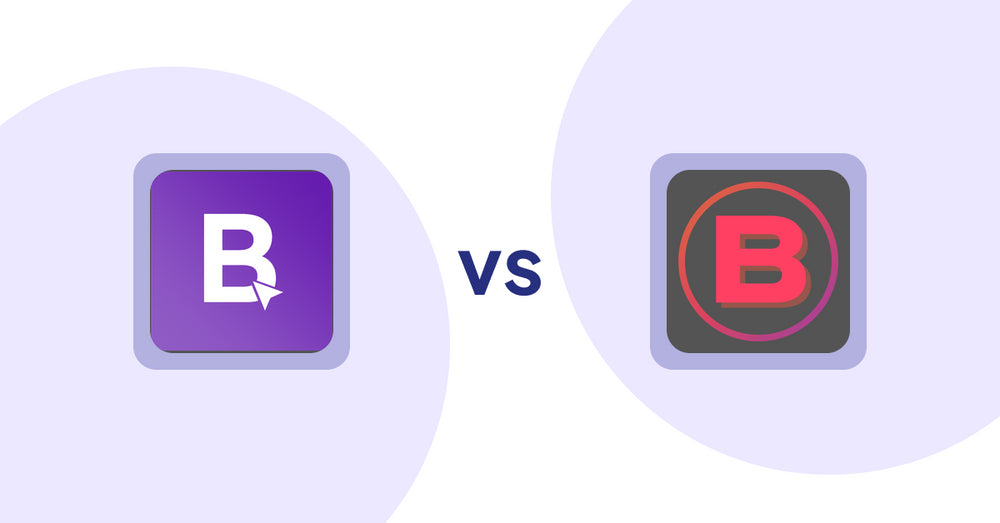
Shopify Product Display Apps: BookE ‑Rent Property & Service vs. Banter Stories
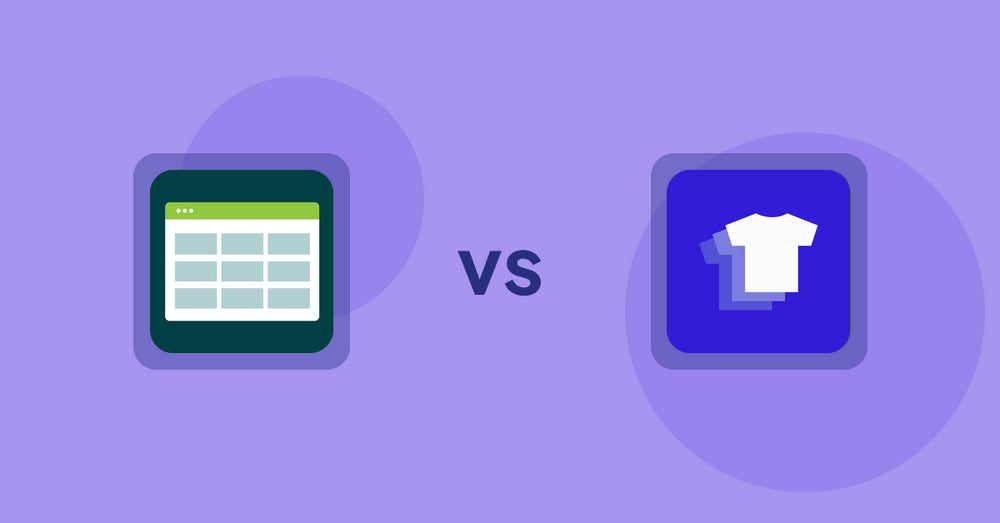
Shopify Product Display Apps: Product Table vs. Xpander
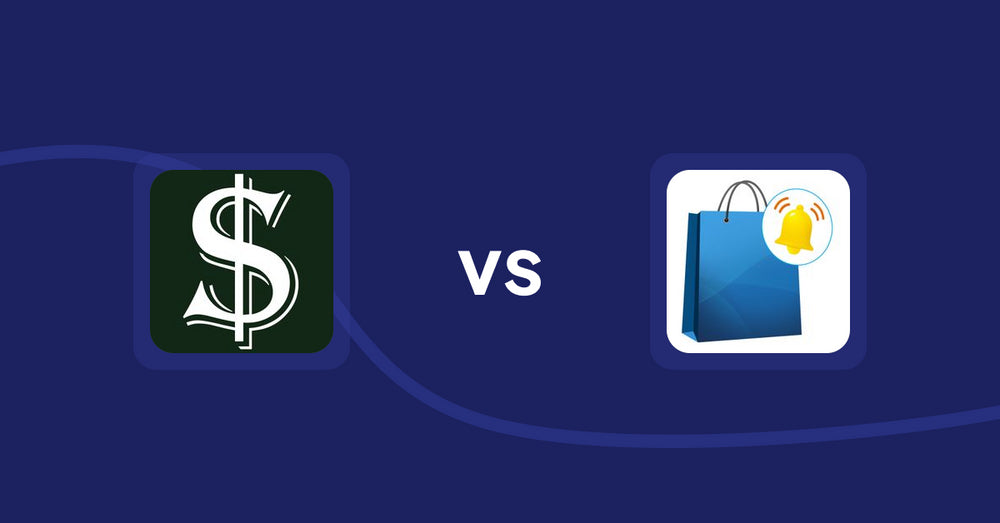
Shopify Product Display Apps: Selling Fast vs CartBar ‑ Product Purchase Bar
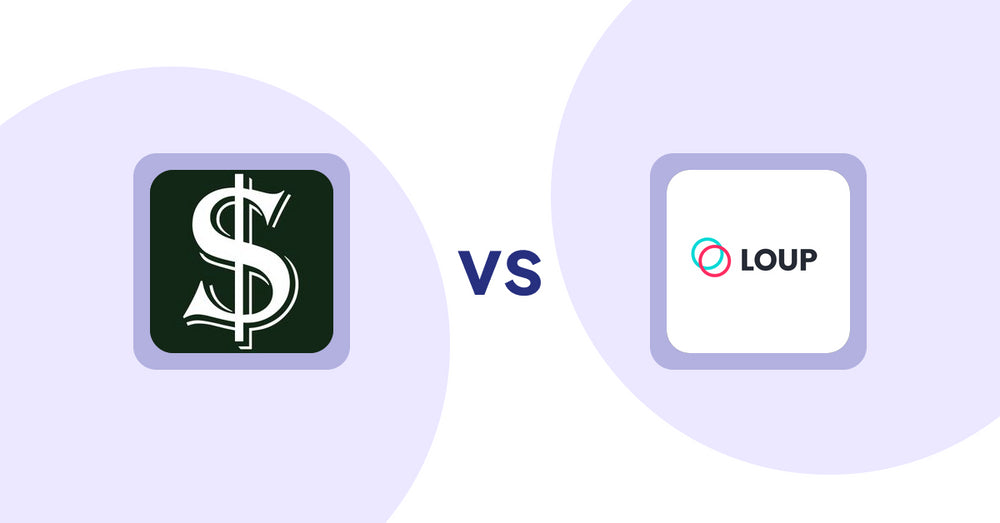
Shopify Product Display Apps: Selling Fast vs. Loup: Sell on Instagram
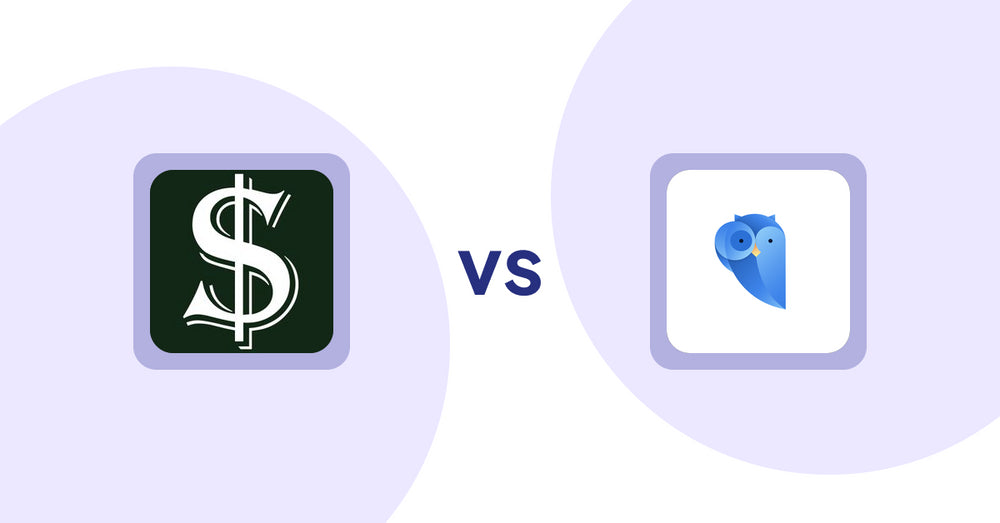
Shopify Product Display Apps: Selling Fast vs. Findify Search & Merchandise
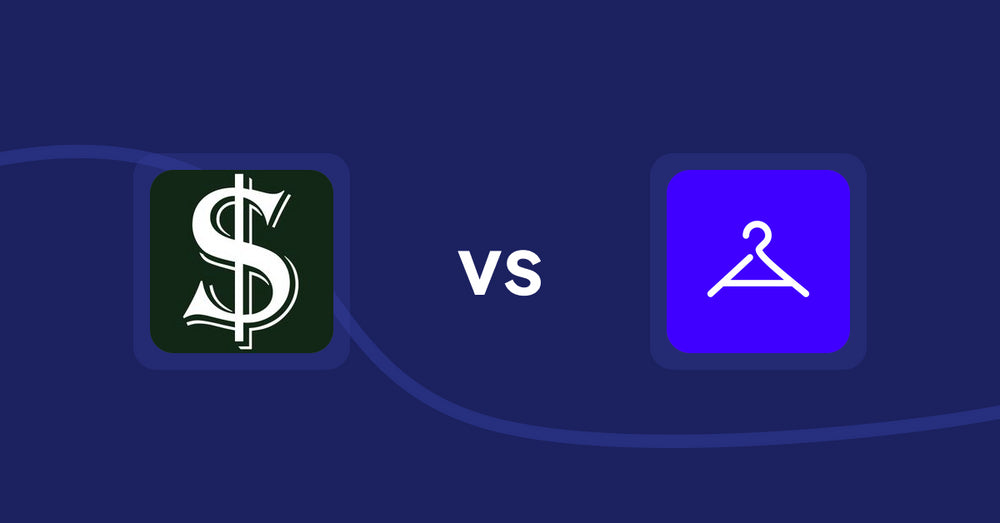
Shopify Product Display Apps: Selling Fast vs. Aiuta
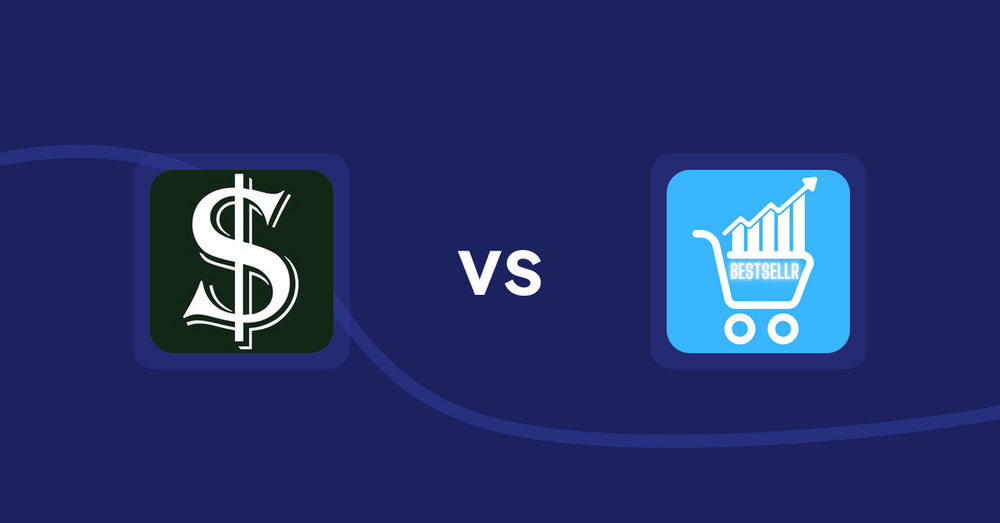
Shopify Product Display Apps: Selling Fast vs Bestsellr
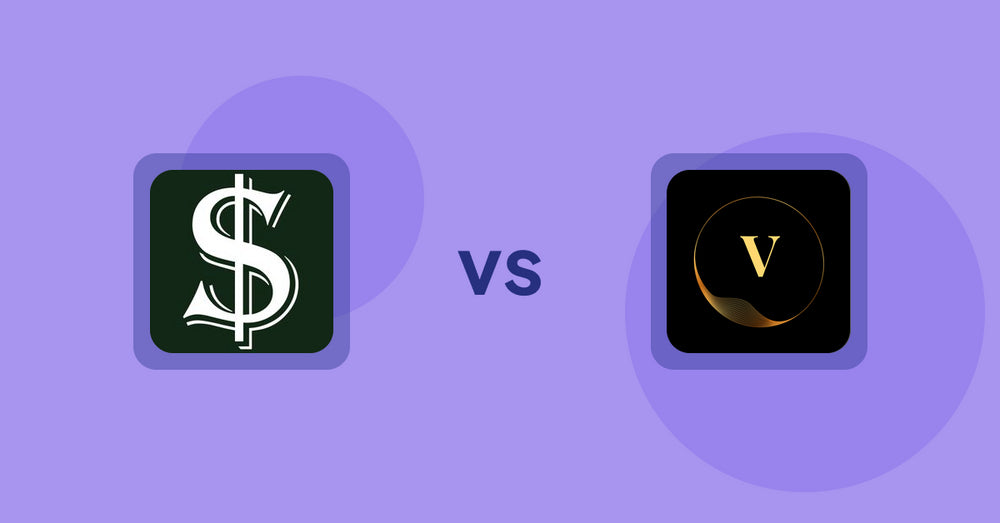
Shopify Product Display Apps: Selling Fast vs ProductTube
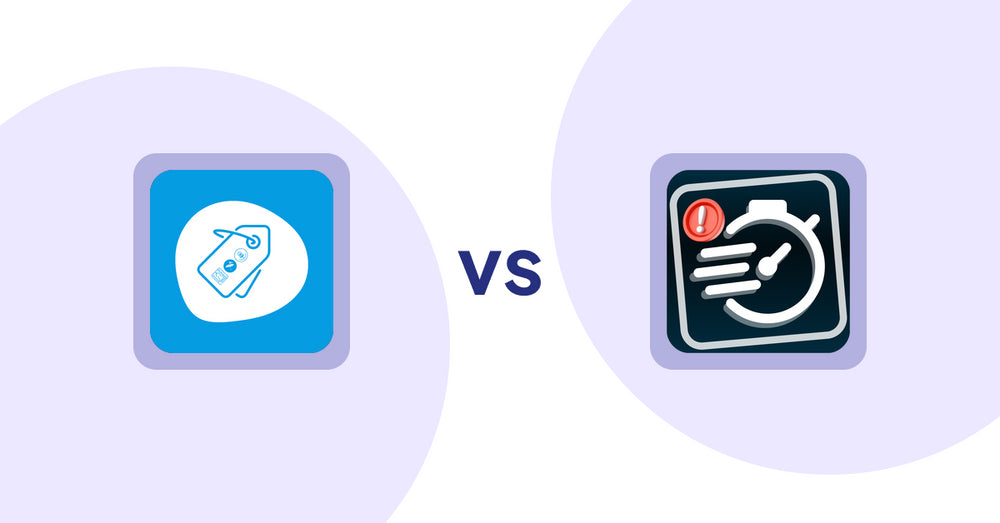
Shopify Product Display Apps: Extendons Product Tag Images vs Urgency! Low Stock Counter
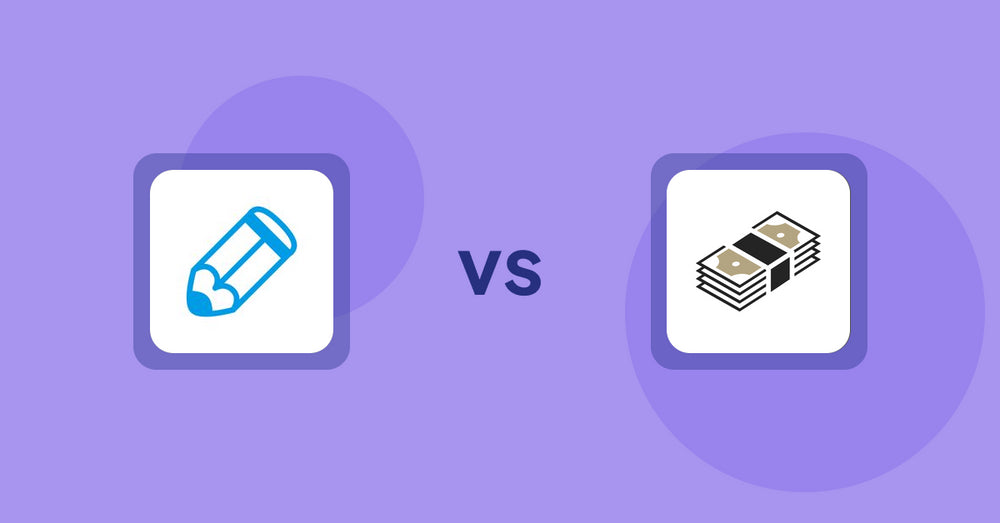
Shopify Product Display Apps: Writer Sofia vs シンプルクラウドファンディング|お手軽自社クラファン
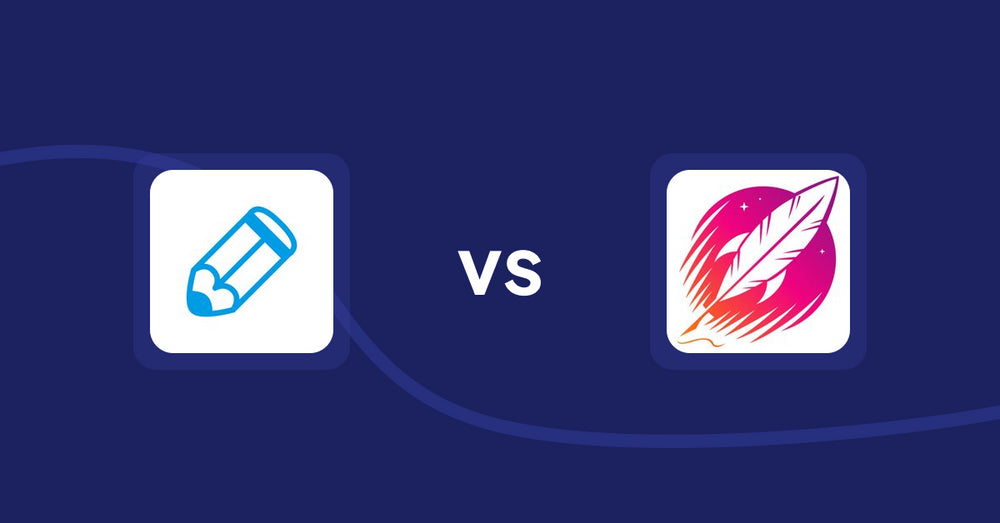
Shopify Product Display Apps: Writer Sofia vs Wordsmith: Content Generator
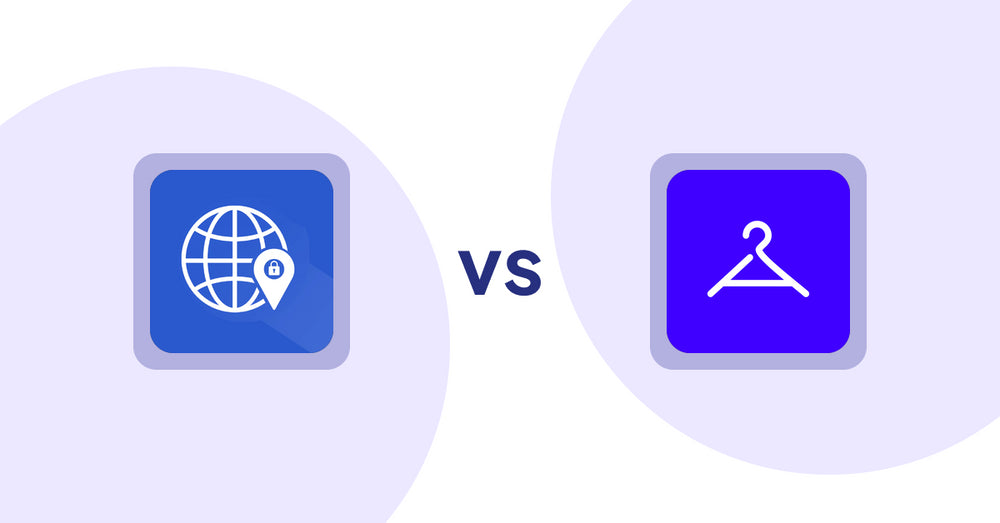
Shopify Product Display Apps: Addify ‑ Country Restrictions vs Aiuta
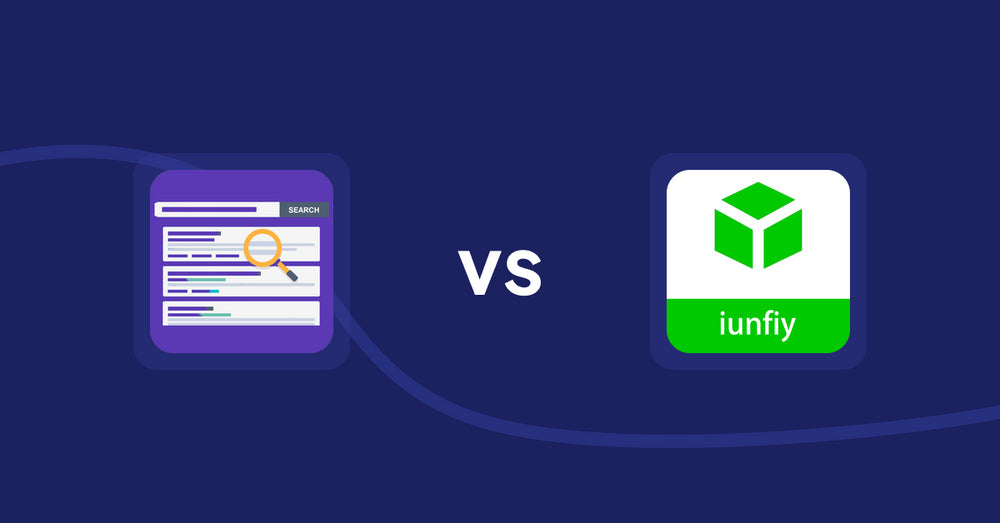
Shopify Product Display Apps: Spark AI Products Description vs iunfiy • Related Products
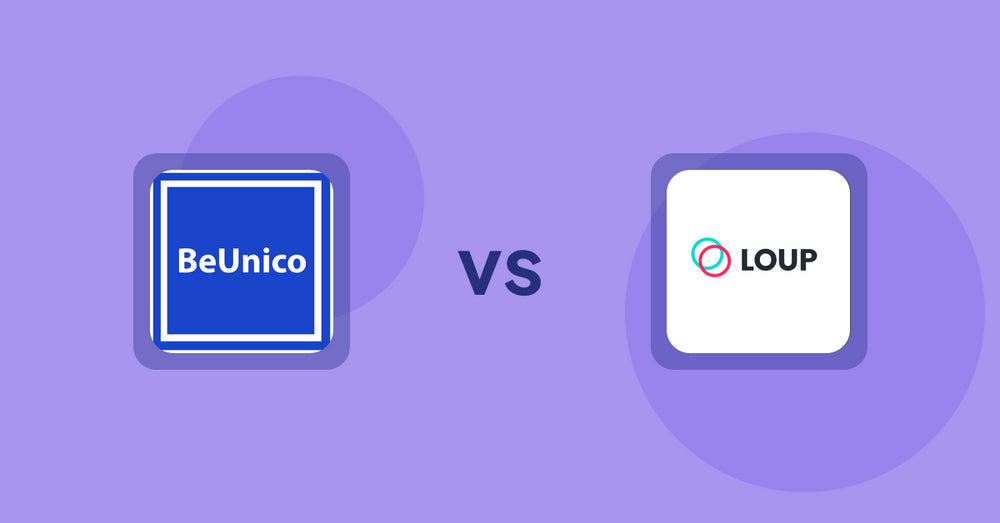
Shopify Product Display Apps: BeUnico vs Loup: Sell on Instagram
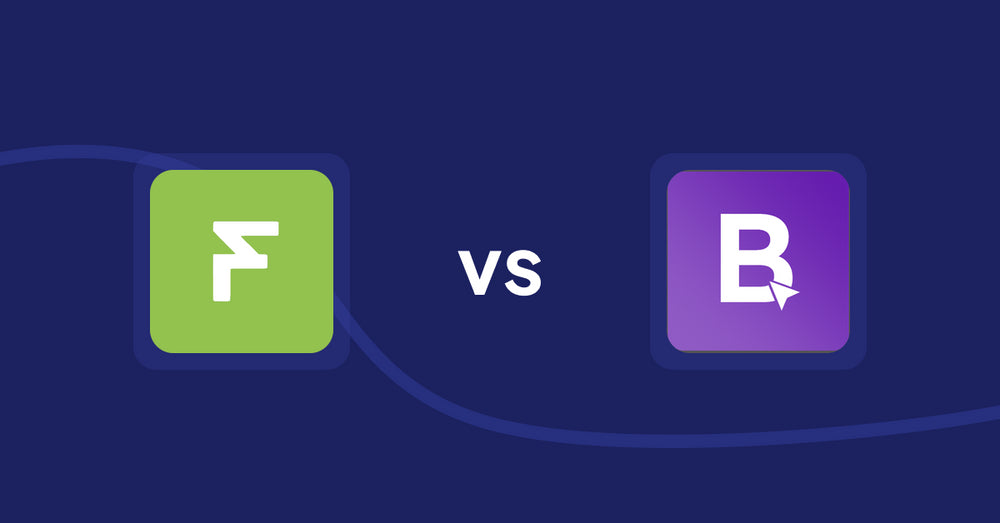
Shopify Product Display Apps: Easy Estimate Shipping vs BookE ‑Rent Property & Service
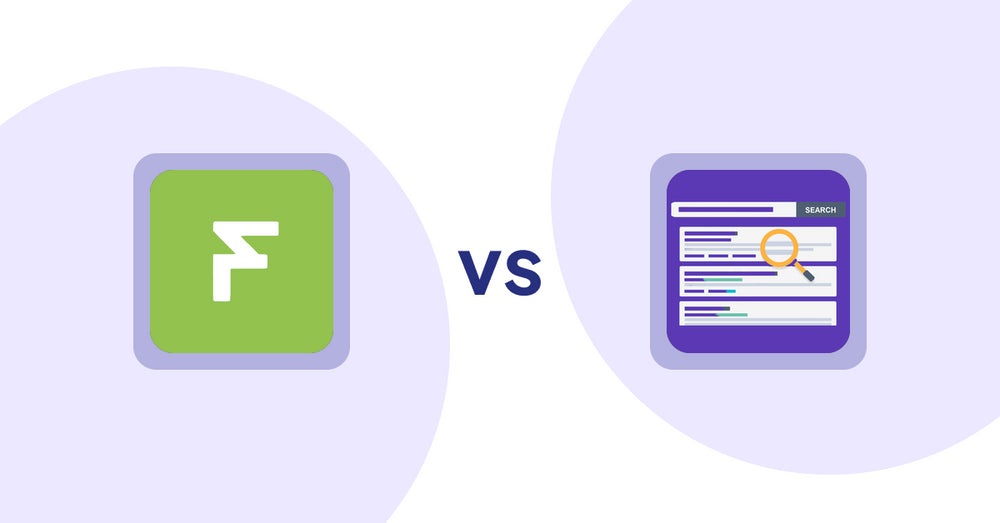
Shopify Product Display Apps: Easy Estimate Shipping vs. Spark AI Products Description
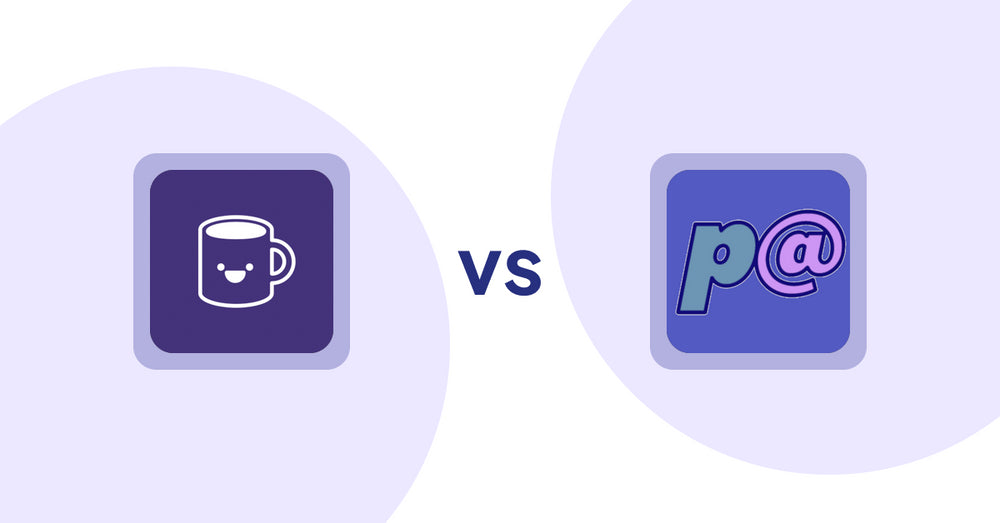
Shopify Product Display Apps: Mugshot Bot vs Parameterizer
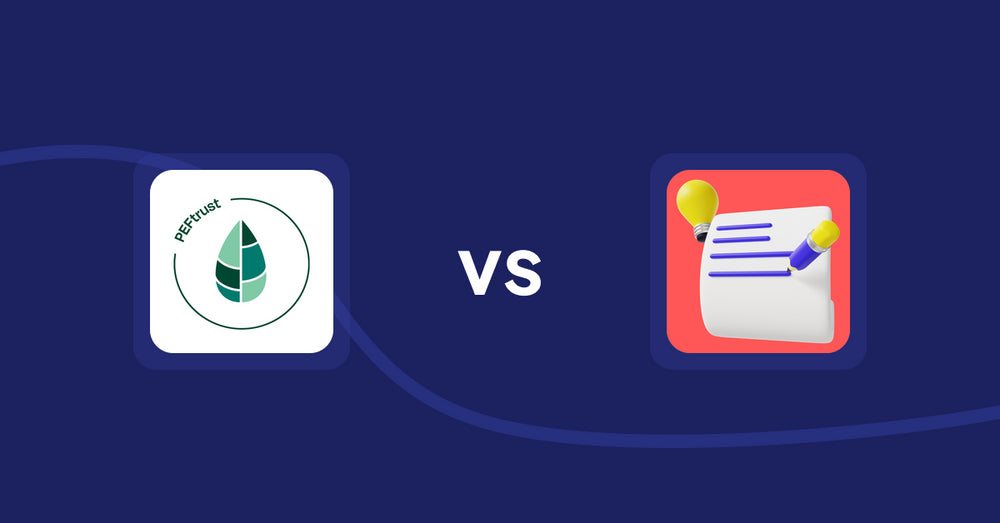
Shopify Product Display Apps: Peftrust vs. Wordo ‑ ChatGPT AI Description
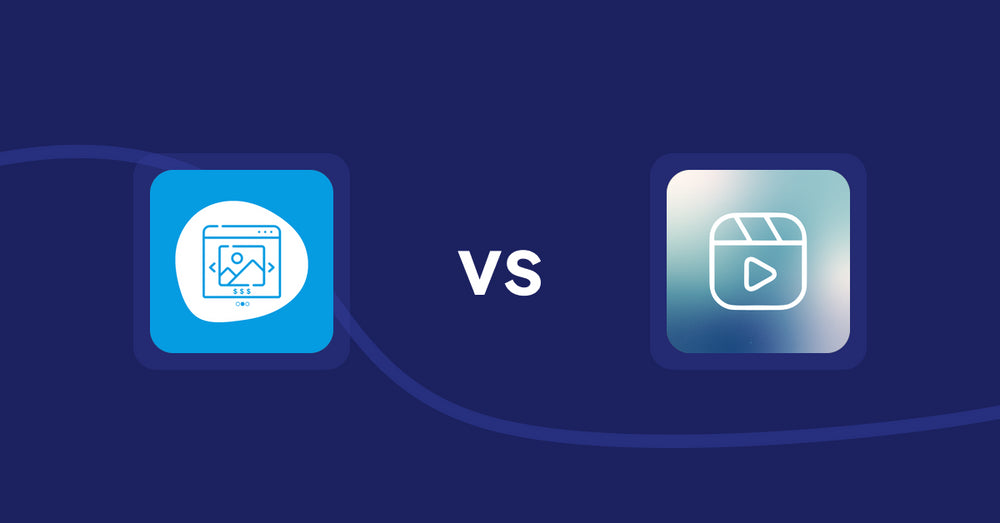
Shopify Product Display Apps: Quick Product Navigator Slide vs Reelify ‑ Shoppable Reel Video
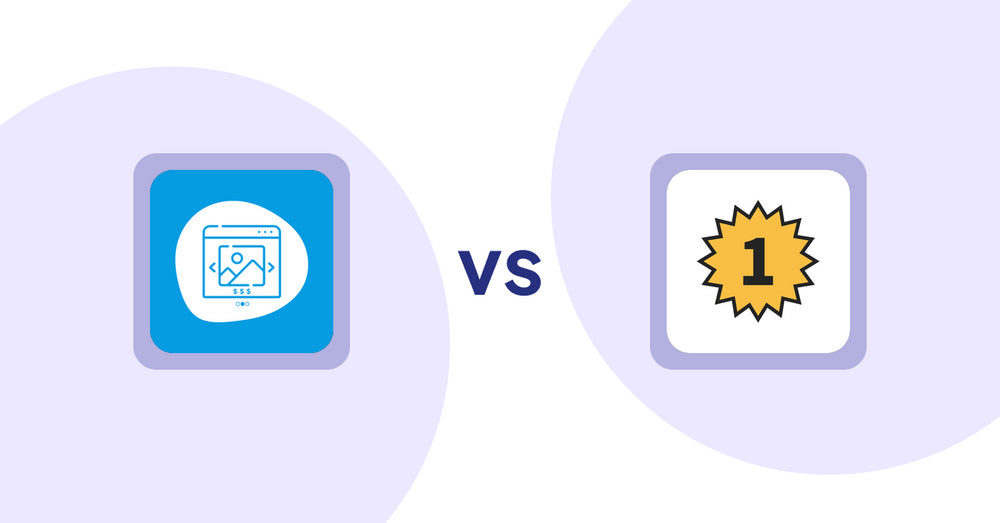
Shopify Product Display Apps: Quick Product Navigator Slide vs. UR: Smart Ranking
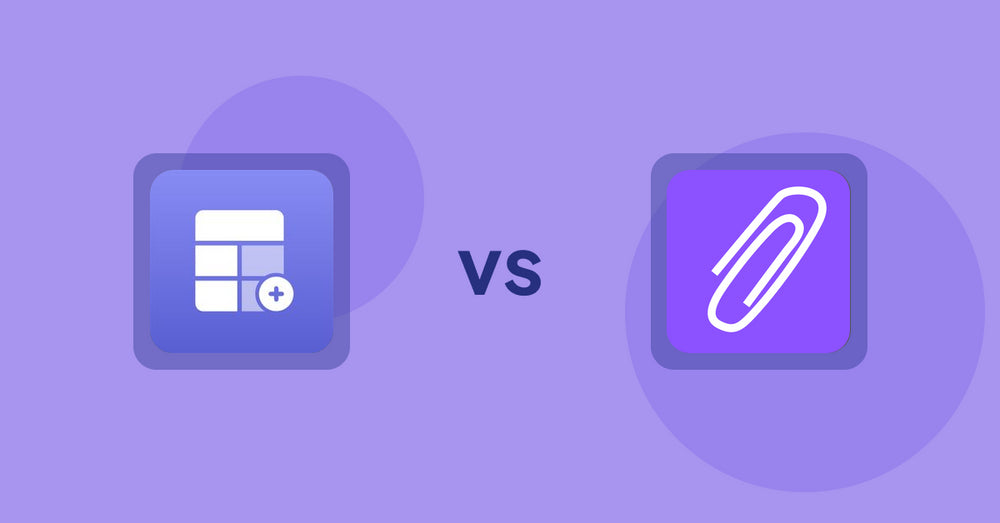
Shopify Product Display Apps: Eazy Specification Tags Table vs Agile Attachments
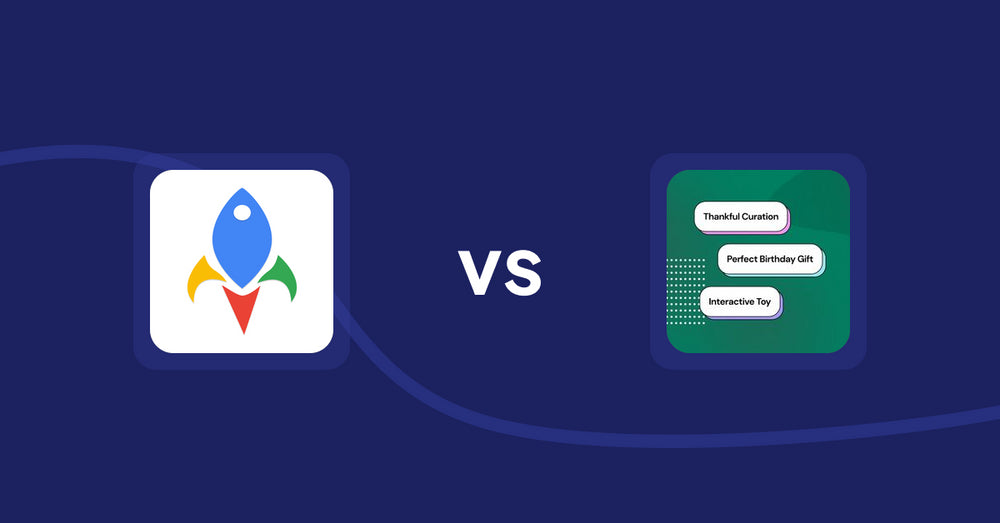
Shopify Product Display Apps: Jedi Back In Stock Admin Alert vs FeatureFrame ‑ Pretty Product
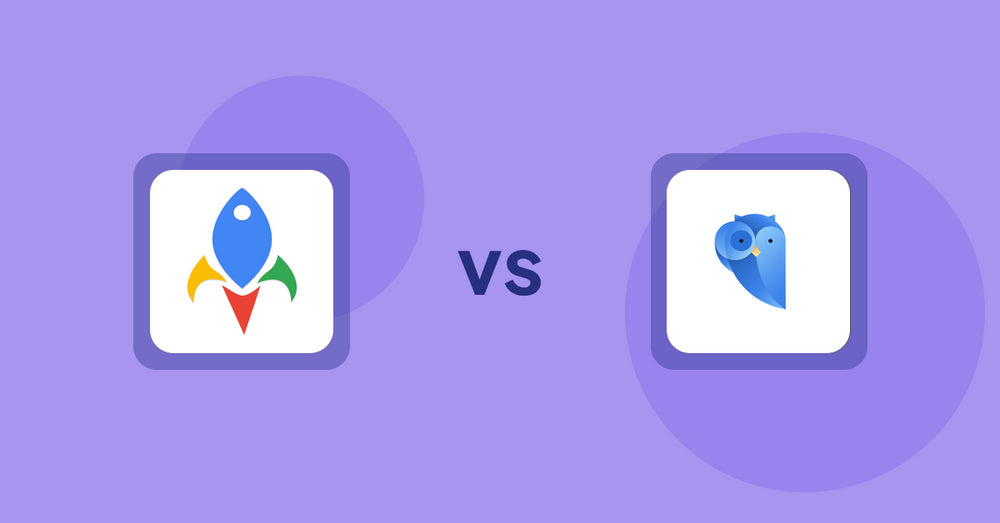
Shopify Product Display Apps: Jedi Back In Stock Admin Alert vs. Findify Search & Merchandise
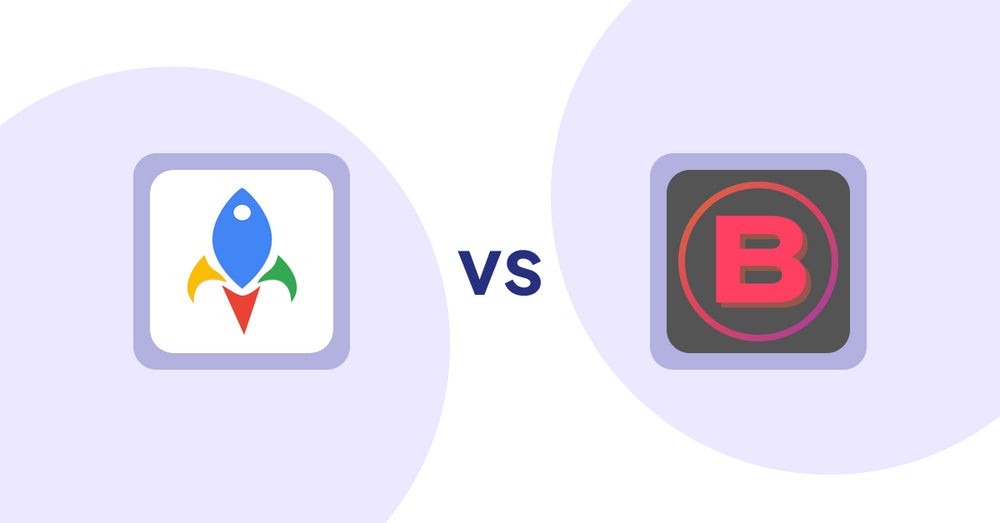
Shopify Product Display Apps: Jedi Back In Stock Admin Alert vs Banter Stories
